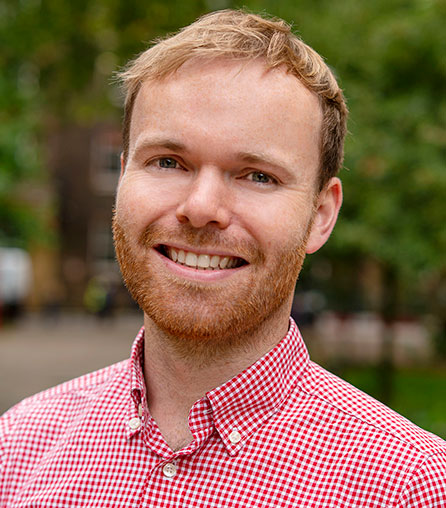Care providers need to be aware of the damage of inappropriate curiosity when working with people who are transgender, say Adam Shepherd, Benjamin Hanckel, and Andy Guise
Encountering inappropriate curiosity is a common experience among people who identify as LGBT. This kind of behaviour shouldn’t happen in a healthcare facility, yet recent reports from Stonewall and the government’s Equalities Office confirm that this is a problem in healthcare and that it particularly affects people who are transgender.
What do we mean when we say that a healthcare provider is showing “inappropriate curiosity?” Researchers provided insight into what this is in a study where they describe trans participants being asked intrusive questions about their personal lives and being subjected to invasive physical examinations. Participants felt that these were irrelevant to why they had sought out medical care, and that their only purpose was to satisfy the personal interest of the healthcare practitioner. Imagine, for example, going to your GP for a chronic cough and being asked what genitals you have, or going for a foot X-ray and the radiographer making comments about your breasts.
Inappropriate curiosity seems to be directed more often at transgender respondents compared with LGB cisgender participants. Stonewall’s 2018 LGBT in Britain Health report found that 48% of transgender respondents had experienced inappropriate curiosity compared with 20% of LGB cisgender participants. Although the 2018 National LGBT Survey quoted more conservative figures of 18% and 6%, respectively, trans people still faced three times the amount of inappropriate curiosity than LGB+ cisgender people.
When we are presented with something new, it is human instinct to be curious. Yet if you imagine curiosity to exist along a spectrum, then one end will be appropriate curiosity and the other inappropriate curiosity. However, there has not been enough research done with trans people for us to understand when curiosity from healthcare workers begins to be harmful.
A 2016 report by the National Institute of Economic and Social Research found that there is a lack of evidence in the UK on the health inequalities faced by the trans community. However, the limited evidence available indicates that transgender people, on average, face even worse health inequalities than LGB+ cisgender people.
In Stonewall’s LGBT in Britain Health report, for example, 2% of LGB cisgender participants stated that they had been denied care because of their sexuality. This increased to 16% for trans people being denied care because of their gender identity. On average, 14% of all respondents said that they had avoided seeking healthcare due to fear of discrimination, yet when looking at only trans people this nearly tripled to 37%.
In the UK government’s National LGBT survey, 13% of cisgender respondents said that they had experienced negative reactions when seeking care due to their identity. For trans participants it was 40%. Transgender people already face stigma and discrimination when it comes to seeking healthcare, and the danger of inappropriate curiosity is alienating them even more within the healthcare setting.
This is not isolated to the UK. On a global scale, one area where health inequalities are notably high is HIV care and this is particularly true for trans individuals. According to UN AIDS, transgender people are 49 times more likely than the average person to acquire HIV.
An important step in reducing health inequalities is to ensure that people can access culturally sensitive and competent care services. To achieve this, it is important to create an environment that is safe for trans people to be in, which is why inappropriate curiosity has no place in healthcare.
When a trans person comes to us for medical advice, they come to us as a patient. Their role is not to be an educator about trans health. Their role is not to be a public speaker on the lives of trans people. Their role is not to be a specimen for us to further our own knowledge. As healthcare practitioners we have a duty of care to our patients, and this includes being culturally competent enough to recognise when we are being inappropriate—however unintentional.
If you are curious about these things and want to learn more, then seek appropriate resources. Ben Vincent’s and Ruth Pearce’s books on transgender health are a good starting point. Notable websites include the World Professional Association for Transgender Health and their Journal of Transgenderism, genderspectrum, GenderTrust, and Trans Health. Speak to other health practitioners that are more knowledgeable or reach out to support groups that can point you in the right direction. A patient consultation is not the place for this.
If you provide care to trans people and want to avoid being inappropriately curious, then ask yourself: Why do I need to know this? If the answer is that it will impact the care that you will give, go ahead and ask the question or do the investigation. If you’re not sure why, then perhaps it’s better that you don’t.
Adam Shepherd is a trans man who is currently studying medicine at King’s College London. He has a masters degree in public health and hopes to continue his research in trans healthcare in the coming years. Twitter @amshep95
Competing interests: None declared.
 Benjamin Hanckel is a researcher at King’s College London, and holds a university associate role at the University of Tasmania. His research work examines marginality, health, and wellbeing, with a particular focus on the experiences of sexuality and gender diverse people. Twitter @benhanckel
Benjamin Hanckel is a researcher at King’s College London, and holds a university associate role at the University of Tasmania. His research work examines marginality, health, and wellbeing, with a particular focus on the experiences of sexuality and gender diverse people. Twitter @benhanckel
Competing interests: None declared.
 Andy Guise is a lecturer and researcher in social science and health at King’s College London. His research focuses on experiences of homelessness, drug use, and urban exclusion. Twitter @andyguisekcl
Andy Guise is a lecturer and researcher in social science and health at King’s College London. His research focuses on experiences of homelessness, drug use, and urban exclusion. Twitter @andyguisekcl
Competing interests: None declared.

